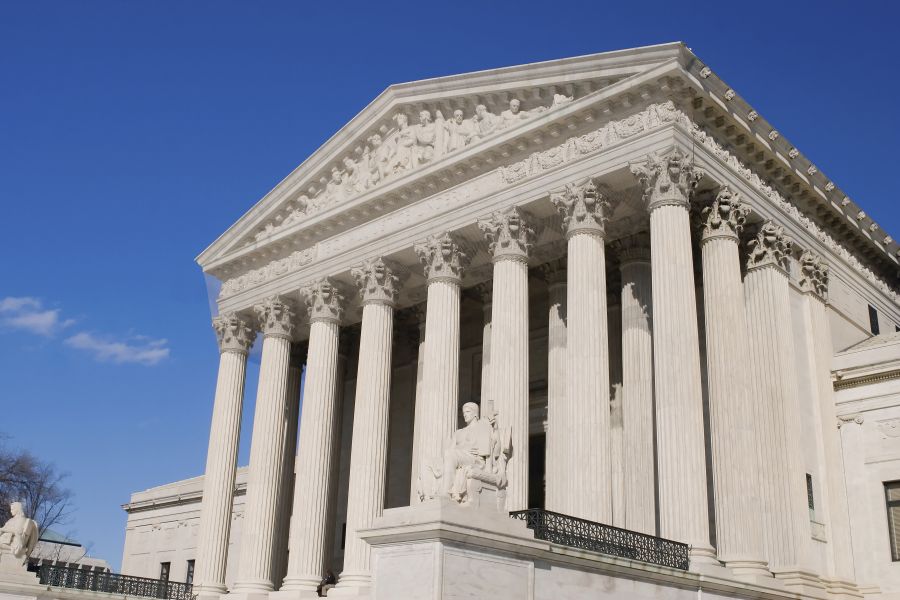Fighting over the meaning of First Amendment freedoms
First Five by the Freedom Forum Institute
Jul 16, 2020

GENE POLICINSKI
Download Word doc here.
There’s a bit of an intellectual fistfight going on these days about free expression — and we all have a stake in the outcome.
The early rounds have been going on for years: in essence, a theory that pops up periodically in history that some ideas simply are too dangerous to allow them to be voiced in public. The opponent to that theory: The longtime belief in the “marketplace of ideas,” where any person may advance any idea — however repugnant, vile or even evil — and be subject to the review, and perhaps revile, of all others.
Critics of the marketplace approach have several arguments. American critics note the amendment was adopted in 1791, carrying forward ideas about free expression that even then were centuries old, and thus see it as out of place in a modern world.
Another objection is that the internet, with its instant and global reach, makes ineffective the expected marketplace interplay of speaker and responder, through which the hope is bad ideas fail, good ideas improve and best ideas thrive.
Yet another criticism of the marketplace concept is that money, technology and power have created an elite group (or groups) in control of most meaningful communication (and perhaps content) across the web, rendering criticism, counterviews, unpopular or unconventional ideas — and certainly revolutionary ones — unable to reach a mass audience.
Critical race theorists believe that American jurisprudence essentially has elevated the liberty interests of the First Amendment over the equality interests of the 14th Amendment.
And finally, there is the claim that some ideas simply are too dangerous or misleading or manipulative to be allowed into the marketplace at all — from race, ethnic and religious hatred to sexual exploitation and abuse to commercial messaging and political misinformation — now aided and abetted by hidden algorithms and those in charge of a handful of private tech companies more intent on profits than seeking truth.
Whew. That’s a pretty strong set of arguments that some things need fixing when it comes to free expression in the early years of the 21st century. Most of us likely would agree with many, if not all of them — on first glance.
Interestingly, the sides in this dispute don’t automatically align along our current political fractures. Some liberals and conservatives see the web as too wide open, allowing dangerous ideas and speakers access to audiences that can be influenced; while others view the web as a tightly controlled funnel of filtered information combined with manipulation that blocks voices (either too conservative or too liberal — take your pick) with a goal of shaping public opinion.
The current battle is not just over the criticisms, but over the solutions as well. Twitter and other sites gain praise and scorn for blocking some users for alleged violations of those sites’ terms of service, ranging from foul language to misleading health claims to personal attacks and what the sites deem deliberate misinformation. Tech firms can block, tag and take down posted content, in a bit of irony to some, because they have their own First Amendment rights as private companies.
So, some on either side of this dispute would bring government into the ring, where First Amendment freedoms would apply — one side seeking exceptions to free speech protections for things such as violent content, or racist views, or demeaning portrayals of women, or LGBTQ persons; and the other combatants asking government to oversee and override those private companies’ decisions, in the name of protecting conservative voices they see as all-too-often excluded from public discourse.
Who are the combatants of late? In one corner, signatories to an open letter titled, “A Letter on Justice and Open Debate,” published July 7 in Harper’s Magazine, include a number of the world’s best-known creative minds, such as J.K. Rowling, Wynton Marsalis, Gloria Steinem, Salman Rushdie and about 150 other authors, journalists, publishers and artists.
In the other corner of this particular bout are those who signed this week onto another letter published on the online commentary site The Objective — which self-identifies as a place with information and views by and for “historically ignored communities” — by another group of literary, media and artists. This missive entered the fray acknowledging the fight even reaches into its signatures area, noting some could be identified only generally, usually by professional occupation and place of work, because of fears of “workplace retaliation” by the established communication masters for whom some work.
Their view of the Harper’s letter, in a piece titled, “A More Specific Letter on Justice and Open Debate” explains, “Nowhere in it do the signatories mention how marginalized voices have been silenced for generations in journalism, academia and publishing …” and “the letter does not deal with the problem of power: Who has it and who does not.”
To be sure, many of latest blows in this intellectual boxing match have been struck via high-concept review of the theories of human communication and in well-founded critiques of who had and has access to tools of speaking out in public — news media, book publishers, broadcasters and now social media companies.
But in the early rounds, the heavyweights punched the outmoded model of the marketplace of ideas for two reasons: One, that it never worked as intended because many minority groups, however defined, were denied access to speak and be heard — a stark truth that cannot be denied; and two, there is such a thing as truth, and to knowingly permit non-truth is counter-productive to society and should not be permitted.
Boil it all down and it comes to a very simple First Amendment question: Is the response to speech you consider untruthful, disgusting or misleading more speech or less speech? If the former, what do you do as, with lightning speed and wide public acceptance by the unknowing, the web is flooded with true threats to public health, hate speech from white supremacists or deliberately misleading political ads and fraudulent electioneering from world adversaries?
If the latter, who gets to be the national nanny, defining truth, excluding some voices while inviting in others and monitoring the billions of social media posts each day — all while remaining nonpartisan and apolitical in today’s hyper-divided nation?
Wiser minds — including, with hope, most of us — will need to parse those questions and more as the First Amendment’s five freedoms (religion, speech, press, assembly and petition) are tested in court, on the street and occasionally on the pages of online magazines.
As for me, I theorize the nation’s founders would chuckle at the idea that all of this is new. The mechanisms of communications were different, but the goals in 1791 were the same: The exchange of ideas for a better life for us all, many at the time deemed too dangerous for society to hear — ideas like “all men are created equal” and that democracy was favorable over monarchy.
While this fistfight is mainly staged in the mind, there are real-world examples of the cost of the fight. New York Times op-ed editor Bari Weiss resigned the other day, saying in a letter she self-published that she was “hired with the goal of bringing in voices that would not otherwise appear in your pages: first-time writers, centrists, conservatives and others who would not naturally think of the Times as their home.”
In leaving the paper after about three years, she said, “ … a new consensus has emerged in the press, but perhaps especially at this paper: that truth isn’t a process of collective discovery, but an orthodoxy already known to an enlightened few whose job is to inform everyone else.”
Weiss concludes her resignation by noting founder Adolph Ochs’ 1896 statement “to make of the columns of The New York Times a forum for the consideration of all questions of public importance, and to that end to invite intelligent discussion from all shades of opinion.”
“Ochs’s idea is one of the best I’ve encountered,” Weiss continues. “And I’ve always comforted myself with the notion that the best ideas win out. But ideas cannot win on their own. They need a voice. They need a hearing. Above all, they must be backed by people willing to live by them.”
More of us need to make our voices heard in this latest fight over the meaning of the First Amendment’s 45 words, lest we see them reshaped — or lost — without having ever set foot in the ring.









